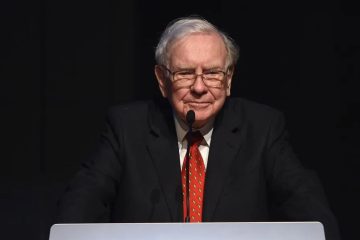When It Comes to Corporate Governance, Why It Matters

An unpleasant reality for investors is exemplified by Elon Musk’s Tesla: Large owners govern their companies in a way that benefits the lesser shareholders, even as they ignore regulations meant to safeguard them.
Judgement against Musk’s 2018 compensation package of $50 billion or more has put Tesla’s management, long the object of criticism, back in the limelight. A tiny shareholder in Delaware launched the action because she was worried about the dilutive effect of stock options that were given, which amounted to a massive 12% of the shares at the time, despite the high performance criteria for their vesting.
How should investors handle influential shareholders is an age-old subject that this brings up again. Large public firms’ founders typically have impressive resumes, and their financial stakes in the company provide them with a strong motivation to maintain that reputation. Their outsized influence and voting power, however, also allow them to ignore the opinions and concerns of other owners.
This conflict is most commonly linked to tech enterprises in Silicon Valley in the United States. Companies like Meta and Alphabet use their many share classes to consolidate founder power, in contrast to Musk’s authoritarian leadership over Tesla, as determined by the Delaware Chancery Court. Europe is home to some of the world’s most prestigious consumer brands, like LVMH, L’Oréal, and BMW, all of which have long-term shareholders. Interestingly, the founders’ families still have significant control in several of these companies.
According to calculations made by the French asset manager Carmignac, these types of companies typically outperform their rivals, even though their governance scores are now around 7% below average. By the end of 2023, you would have amassed €393 compared to €310 if you had put your first investment of 100 euros (about $108 at the time) into the Carmignac Family 500 database in January 2004. Companies controlled by families, foundations, trusts, or other entities with more than 10% voting rights are included in the investor’s list.
The head of a Carmignac fund that uses this universe, Obe Ejikeme, admits that he had doubts about the impact before calculating the figures. Such stocks may be viewed with distrust by investors for reasons other than governance. Additionally, their liquidity is reduced because there are fewer shares available for trading when more are retained for long-term.
The fact that they do better is “actually extraordinary” due to the “so many risk factors involved,” he explains.
The “skin in the game” concept is quite important, to put it simply. CEOs-for-hire lack the long-term commitment and financial stake in a firm that long-term stockholders possess.
The legions of attorneys and boardroom consultants hired to keep corporations in line since the Sarbanes-Oxley Act of 2002 tightened US regulations could lead one to believe that concerns about governance are exaggerated. After 2008, a study published in the Journal of Corporate Finance in 2022 indicated that better market returns were actually linked to bad governance.
According to Mohammed Zakriya, an associate professor at France’s IÉSEG School of Management and one of the study’s authors, this could be due to the fact that poor-governance equities underperformed during the financial crisis, resulting in a discount that was unwound during the subsequent bull market. Over a very good twenty years for stocks, family firms outperformed other types of enterprises in Carmignac’s database.
Instead of viewing good governance as a generator of profits, it is more accurate to think of it as an insurance policy against things going wrong. In addition to the possibility of a severe economic downturn, unbridled executive power is a common cause of business crises like the one that befell Enron in 2015 (and led to the Sarbanes-Oxley regulations) or Volkswagen in 2008.
Carmignac discovered no benefit to investing in family-run businesses in emerging nations, which is another indication that governance is more important when it is absent. Minority shareholders are more likely to be exploited in poorer nations because the institutions that establish and enforce governance rules are weaker.
Indian conglomerate Adani has been in the spotlight recently due to accusations leveled by American short seller Hindenburg that the company manipulated stocks and committed accounting fraud by taking advantage of its tight political relationships. Adani Enterprises, the group’s flagship company, has nearly recovered in the past year after the claims were denied.
Even though companies like Microsoft and Nvidia, who are also part of the Magnificent Seven, have seen increases in their stock prices this year, Tesla’s stock has fallen around 20% due in part to the governance problem. These businesses are sometimes grouped together as competitors due to their shared interest in AI. However, Musk recently vowed to pursue other opportunities in the AI industry unless he could increase his current 25% stake in Tesla to 25%. The stock has increased by around a factor of ten in the past five years.
Few believe Musk will genuinely let his most valuable asset go uncared for. A new supervoting class of Tesla shares, like to the ones owned by Mark Zuckerberg at Meta, Larry Page, and Sergey Brin at Alphabet (the parent company of Google), might provide a solution to the problem. If taken at its value, however, shareholders face the unattractive decision of either losing Musk’s attention or replacing the canceled 2018 pay agreement with another extremely dilutive one.
An old adage appears to be being confirmed by the drama that will continue to unfold in the next months: Good governance is irrelevant until it is suddenly relevant.
Gil Ecker
Gil Ecker is Charting & Technical Analyst. He has more than 10 years experience of Global Stock Markets.








